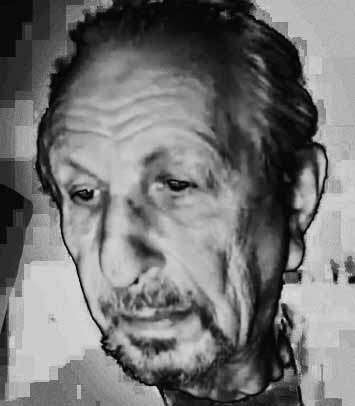Twentysomething Philippe Sly wields an impressive voice. Like the mythical John Henry’s hammer, it rings like silver in the upper register, the middle shines like gold, and his bass is firm as iron. From the second line of Henri Duparc’s “Chanson Triste” Sly interested with his way of rolling out phrases, englobing lines in cavernous spaces. It was also clear early on in the program of French and German song that usually Sly followed the opening lead of pianist Julius Drake, but towards the middle of the song he tended to over-amp before reining in the volume of his passion towards the end. His demeanour was generally concentrated, if a bit stiff, standing tall with one hand braced on the piano, always giving the songs of this mostly sombre program their due. When the pattern of unfulfilled longing broke, with Ravel’s good-humoured songs, especially the chanson on the joy of being drunk, Sly’s hand came off the piano and began doing some cool jive of its own, his face broke into a kaleidoscope of witty expressions, and easy pleasure flooded the room.
The artistry of Julius Drake was impeccable and consistent. In the first of four songs by J.G.M. Ropartz based on texts translated to French from the German poet Heine, Drake took the intermezzo solo, pounding and tinkling his way through the variations of an awesome four-note motive with perfect articulation, exquisite timing, and a sense of taste that became a highlight of the recital for me. It is a rare pleasure indeed to be drawn as much to the accompanist as to the singer.
Art-song is a difficult business, not least because it comes mostly out of great suffering. Henri Duparc’s depression caused him to quit writing at age 36, when he destroyed all but seventeen of his songs and went into seclusion for the next 40-plus years of his life. Hugo Wolf was bipolar, suffered a mental breakdown brought on by syphilis, and spent the last five years of his life in an asylum. At the time of writing his mostly cheerful songs, Ravel was experiencing symptoms of the neurological disease that would shortly stop him from writing the music that was trapped in his head. And dear Franz Schubert lived mostly in obscurity, died early of an STD, and it is not surprising that one of his songs on the program (“Gruppe aus dem Tartarus”) is about the torments of hell, and another is entitled “Death and the Maiden”.
Art-song comes mainly from of the courtly love tradition, and its secret is a paradox: that the intoxication of love unrequited and love lost are more intense and longer-lasting than the pleasures of love fulfilled. The music flows from this intoxication where pain and pleasure are inseparable. Philippe Sly’s mostly static demeanour is one way of showing the counterpoise of pleasure and pain. Julius Drake’s more fluid alternations is another. The synch between their styles as well as the contrast, made for an exceptionally dynamic experience.
Julius Drake introduced the closing Schubert segment by saying that musicians go to bed at night full of gratitude for the music of Schubert. He also illustrated the depth of sentiment in the music with an anecdote about Goethe who wrote the text for “Wandrers Nachtlied”. The story goes that in his 82nd year, Goethe revisited a mountain lodge and when he saw this poem he’d written on the wall 50 years before, Goethe wept. Such is the poem, such is the music. Sly and Drake slipped out of the sombre into the cheery with a catchy song about a fisherman who wouldn’t let a flirty shepherdess catch him. This one released a flood of applause, and one encore. It felt very good to be part of an audience privileged to glimpse the future of an artist of great promise, supported by an artist who has mastered his craft.


